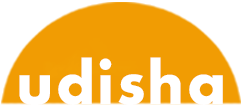UN Publications
Since 2007, Udisha has held Special Consultative Status with the Economic & Social Council (ECOSOC) of the United Nations, allowing us to participate in key UN forums and contribute to global discussions on human rights, social equity, and sustainable development. This has allowed us to regularly contribute to different sessions and submit our reports.
The organization's international advocacy is deeply rooted in its domestic programmatic work. A cornerstone of its activities is providing practical, job-oriented training to marginalized populations, particularly unemployed youth and women. One of its prominent initiatives, "Project Gyaan Vaatika," has trained over 500 young women in employable skills such as beautician services, dress design, tailoring, and security services, with subsequent assistance in placement.6 In its submissions to the UN, Udisha explicitly details this work, noting that it has provided free training in computing, web design, beauty and healthcare, and construction under schemes of both the Indian government and other NGOs.7 This focus on vocational training is complemented by literacy programs designed for school dropouts, enabling them to re-enter formal education through open schooling formats.6
In addition to economic empowerment, Udisha is actively involved in environmental education and awareness. It serves as the national branch of Caretakers of Environment International, a Netherlands-based NGO, and has participated in India's National Environment Awareness Campaign (NEAC), organized by the Ministry of Forest & Climate Change.6 Its environmental work involves organizing seminars, poster competitions, and awareness walks to promote conservation.7 This diverse portfolio of on-the-ground activities—spanning economic, social, and environmental spheres—forms the evidentiary basis for the statements it submits to the United Nations, lending its advocacy a distinct authenticity and practical focus.
As a Self Funded National Civil Society Actor
Udisha has skillfully carved out a distinct role for itself within the UN ecosystem. It acts as a crucial bridge, translating the specific policy challenges and development realities of India for a global audience, while simultaneously interpreting international frameworks like the Sustainable Development Goals for a domestic context. Its core diplomatic posture is one of "constructive alignment." By consistently framing its work as supportive of national government initiatives, it navigates the delicate balance required of a national NGO on the world stage.
This strategy allows Udisha to maintain an independent and critical voice without adopting a purely adversarial stance that could marginalize it domestically or internationally. It uses the UN platform to shine a light on areas needing improvement—such as implementation gaps in social programs or the need for greater gender sensitivity—while positioning itself as a willing partner in finding solutions. This approach exemplifies a sophisticated model of civil society.
List of Publications:
A Coherent Voice: From Grassroots Projects to Global Policy
A defining strength of Udisha's UN advocacy is its direct and transparent link to its on-the-ground programmatic work in India. The organization's statements are not abstract, theoretical pronouncements. When Udisha speaks of the need for job-oriented training at the Commission for Social Development, it does so from the direct experience of running initiatives like "Project Gyaan Vaatika," which provides vocational skills in tailoring and computing to hundreds of young women.When it submits a statement on child protection to the Human Rights Council, it is leveraging years of dedicated work that earned it international recognition.
This tight coupling of local action and global advocacy lends a powerful authenticity to its voice. It allows Udisha to speak with the authority of a practitioner, offering not just critiques but also field-tested models and solutions. This coherence ensures that its recommendations are grounded in the lived realities of the communities it serves, making its contributions to UN discussions practical and relevant. It successfully translates its micro-level interventions into the macro-level language of human rights and sustainable development, demonstrating a clear and consistent theory of change.
Statement on achieving gender equality in the context of climate change, environmental and disaster risk reduction policies (E/CN.6/2022/NGO/142)
Publication Date: 13 December 2021
Commission on the Status of Women, 66th Session
Submitted for the Sixty-sixth session of the Commission on the Status of Women (CSW), this statement was published on December 13, 2021.14 The session's priority theme was "Achieving gender equality and the empowerment of all women and girls in the context of climate change, environmental and disaster risk reduction policies and programmes". Udisha's submission directly addresses this theme from a distinctly Indian perspective.
The statement argues that a primary barrier to gender equality is that women's and girls' voices are often unheard in decision-making. It highlights the gendered nature of the digital divide in India, where a majority of girls lack access to phones and computers due to infrastructural and financial constraints. It also addresses the critical issue of household air pollution resulting from the use of conventional cooking fuels, which disproportionately affects the health of women and their families. In this context, the statement praises the Indian government's Prime Minister Ujjwala Scheme, which aims to provide clean LPG cooking fuel to millions of rural women from families below the poverty line, as a key initiative for improving health and advancing women's socio-economic status.14
Furthermore, the statement connects education to safety, noting that to ensure girls can complete their education, society must address the problems of child marriage and sexual harassment. It references the government's "Beti Bachao, Beti Padhao" (Save Girl Child, Educate Girl Child) program, while also pointing to gaps in its implementation. In a progressive argument, the statement also brings up the growing consensus to recognize housewives as self-employed and determine remuneration for their immeasurable contribution to domestic work and family care. This document is a prime example of Udisha's strategy: framing its local, gender-focused concerns within a global policy discussion on climate and technology, and simultaneously supporting and critiquing national policies.
—————————————-
Statement on Promotion and protection of all human rights, civil, political, economic, social and cultural rights, including the right to development. (A/HRC/45/NGO/67)
Publication Date: 21 September 2020
Human Rights Council, 45th Session
This written statement was submitted to the Forty-fifth session of the Human Rights Council and is listed in the session's official report on submitted NGO statements. The UN Digital Library record confirms its publication date as September 21, 2020. The statement's formal title is "Promotion and protection of all human rights, civil, political, economic, social and cultural rights, including the right to development".
While the full text of the statement is not available in the provided materials, its title and submission under the Council's Agenda Item 3—a general agenda item covering the full spectrum of human rights—indicate its broad scope. This submission to the UN's principal human rights body demonstrates Udisha's intent to position its social development activities, such as providing education and employment opportunities, as direct and tangible contributions to the realization of fundamental human rights. By using the comprehensive language of international human rights law, the organization elevates its local work, framing it as part of the global effort to uphold the dignity and rights of all individuals.
——————————————
Statement submitted by Udisha. (E/CN.6/2020/NGO/100)
Publication Date: 2 December 2019
Commission on the Status of Women, 64th Session
This statement was submitted by Udisha for the Sixty-fourth session of the CSW and was published on December 2, 2019.19 The session was focused on the review and appraisal of the implementation of the Beijing Declaration and Platform for Action. Its submission to the CSW reinforces the centrality of women's empowerment and gender equality to Udisha's mission and international advocacy. This consistent engagement with the CSW over multiple years establishes a clear pattern, marking the organization as a regular contributor to global discussions on women's rights.
—————————————-
Statement on strategies for the eradication of poverty to achieve sustainable development for all. (E/CN.5/2018/NGO/63)
Publication Date: 1 December 2017
Commission for Social Development, 56th Session
Published on December 1, 2017, this statement was submitted for the Fifty-sixth session of the Commission for Social Development, whose priority theme was "strategies for the eradication of poverty to achieve sustainable development for all". In this powerful submission, Udisha presents poverty as a multifaceted "umbrella problem" that cannot be tackled in isolation. It argues that poverty is coherently aggravated by a range of interconnected socio-economic, political, and environmental issues.
The statement explicitly links Udisha's core programmatic work to this theme, emphasizing how its free, job-oriented training programs in areas like computing and healthcare directly combat youth unemployment and thus contribute to poverty alleviation. It highlights the importance of skilling people to enter the organized sector, thereby reducing migration to overpopulated urban centers. The statement also touches upon the role of small-scale industries in creating employment and promoting equitable income distribution. In a demonstration of its sophisticated analysis, Udisha connects its micro-level interventions to macro-level national policy, referencing major Indian economic reforms of the time, such as demonetization and the implementation of the Goods and Services Tax (GST), as part of the broader effort to create a structured approach to poverty eradication.
————————————-
Statement on Human rights in India: Protection of child rights and prevention of abuse. (A/HRC/35/NGO/1)
Publication Date: 24 May 2017
Human Rights Council, 35th Session
This written statement, published on May 24, 2017, was submitted to the Thirty-fifth session of the Human Rights Council. Its title is direct and focused: "Human rights in India: Protection of child rights and prevention of abuse". This submission is a clear example of Udisha leveraging its specific area of expertise on the international stage.
The organization's credibility on this topic is underscored by the 2011 WWSF International Prize it received for its work in preventing child abuse, a fact it highlights in other UN submissions to lend weight to its advocacy. By bringing this issue directly to the UN's highest human rights body, Udisha elevates its domestic child protection advocacy to the level of international human rights discourse. This move serves to draw global attention to the challenges of child rights protection in India and positions Udisha as an expert civil society voice on the matter.
————————————
Statement on the changing perspective on education as a tool to enhance employment for strengthening social development. (E/CN.5/2016/NGO/67)
Publication Date: Circulated for the 54th Session (2016)
Commission for Social Development, 54th Session
This foundational statement, circulated for the Fifty-fourth session of the Commission for Social Development, clearly articulates Udisha's core operational philosophy. The statement outlines a "two pronged approach" to social development that emphasizes the complementary roles of government organizations and civil society. It explicitly positions Udisha's work as supportive of governmental efforts, such as India's "Sarva Shiksha Mission" (Education for All), by working to bridge gaps in access, retention, and learning levels, with a special emphasis on girls' education.
The document details Udisha's focus on creating "awareness, desire and skill" among children and youth. It reiterates its commitment to free, job-oriented training as a means of preventing unemployment and supporting national policies like "Make in India" and "Digital India." The statement also highlights its environmental work and its affiliation with Caretakers of Environment International. Uniquely, it mentions the organization of a Model United Nations conference in 2015, demonstrating a commitment to educating youth about global issues and the workings of the UN system.7 This submission effectively serves as Udisha's calling card to the UN, laying out its pragmatic, partnership-based approach to social development.






